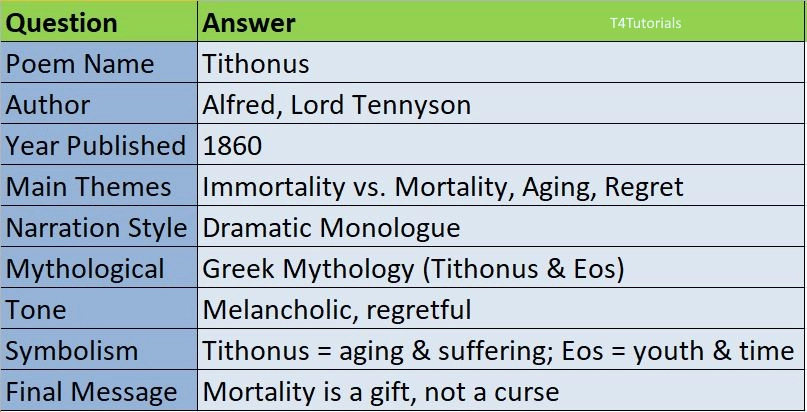Summary:
“Tithonus” is a dramatic monologue written by Alfred, Lord Tennyson in 1860. It is based on the Greek myth of Tithonus, a mortal who was granted eternal life but not eternal youth by the goddess Eos (Aurora), the goddess of dawn. The poem explores the tragedy of immortality without youth. Tithonus, now aged and weak, laments his existence, longing for death, which he can never have. He recalls his past beauty and youth when Eos fell in love with him and took him to her eternal home. However, while the goddess remains young, he has grown old and frail, trapped in a never-ending life of suffering. Tithonus regrets his wish for immortality and pleads with Eos to release him, allowing him to return to the earth and die like other men. He realizes that mortality is a gift, as it spares humans from endless suffering. The poem reflects on themes of aging, regret, the limitations of human desires, and the contrast between mortality and immortality.
10
Score: 0
Attempted: 0/10
Subscribe
| Question | Answer |
| Poem Name | Tithonus |
| Author | Alfred, Lord Tennyson |
| Year Published | 1860 |
| Main Themes | Immortality vs. Mortality, Aging, Regret |
| Narration Style | Dramatic Monologue |
| Mythological Source | Greek Mythology (Tithonus & Eos) |
| Tone | Melancholic, regretful |
| Symbolism | Tithonus = aging & suffering; Eos = youth & time |
| Final Message | Mortality is a gift, not a curse |